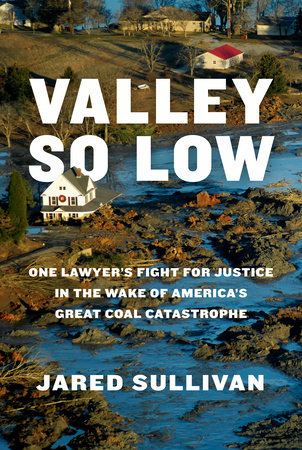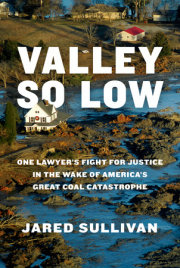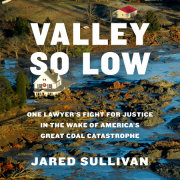WINNER OF THE TENNESSEE BOOK AWARD FOR NONFICTION • A NEW YORKER BEST BOOK OF THE YEAR • A riveting courtroom drama about the victims of one of the largest environmental disasters in U.S. history—and the country lawyer determined to challenge the notion that, in America, justice can be bought
“[A] tense investigative chronicle.” —The New Yorker
For more than fifty years, a power plant in the small town of Kingston, Tennessee, burned fourteen thousand tons of coal a day, gradually creating a mountain of ashen waste sixty feet high and covering eighty-four acres, contained only by an earthen embankment. In 2008, just before Christmas, that embankment broke, unleashing a lethal wave of coal sludge that covered three hundred acres, damaged nearly thirty homes, and precipitating a cleanup effort that would cost more than a billion dollars—and the lives of more than fifty cleanup workers who inhaled the toxins it released.
Jim Scott, a local personal-injury lawyer, agreed to represent the workers after they began to fall ill. That meant doing legal battle against the Tennessee Valley Authority, a colossal, federally owned power company that had once been a famous cornerstone of President Franklin D. Roosevelt’s New Deal. Scott and his hastily assembled team gathered extensive evidence of malfeasance: threats against workers; retaliatory firings; disregarded safety precautions; and test results, either hidden or altered, that would have revealed harmful concentrations of arsenic, lead, and radioactive materials at the cleanup site. At every stage, Scott—outmanned and nearly broke—had to overcome legal hurdles constructed by TVA and the firm it hired to help execute the cleanup. He grew especially close to one of the victims, whose swift decline only intensified his hunger for justice. As the incriminating evidence mounted, the workers seemed to have everything on their side, including the truth—and yet, was it all enough to prevail?
The lawsuit that Scott pursued on the workers’ behalf was about their illnesses, no doubt. But it was also about whether blue-collar employees could beat the C-suite; if self-described “hillbilly lawyers” could beat elite corporate defense attorneys; and whether strong evidence could beat fat pocketbooks. With suspense and rich detail, Jared Sullivan’s thrilling account lays bare the casual brutality of the American justice system, and calls into question whether—and how—the federal government has failed its people.








